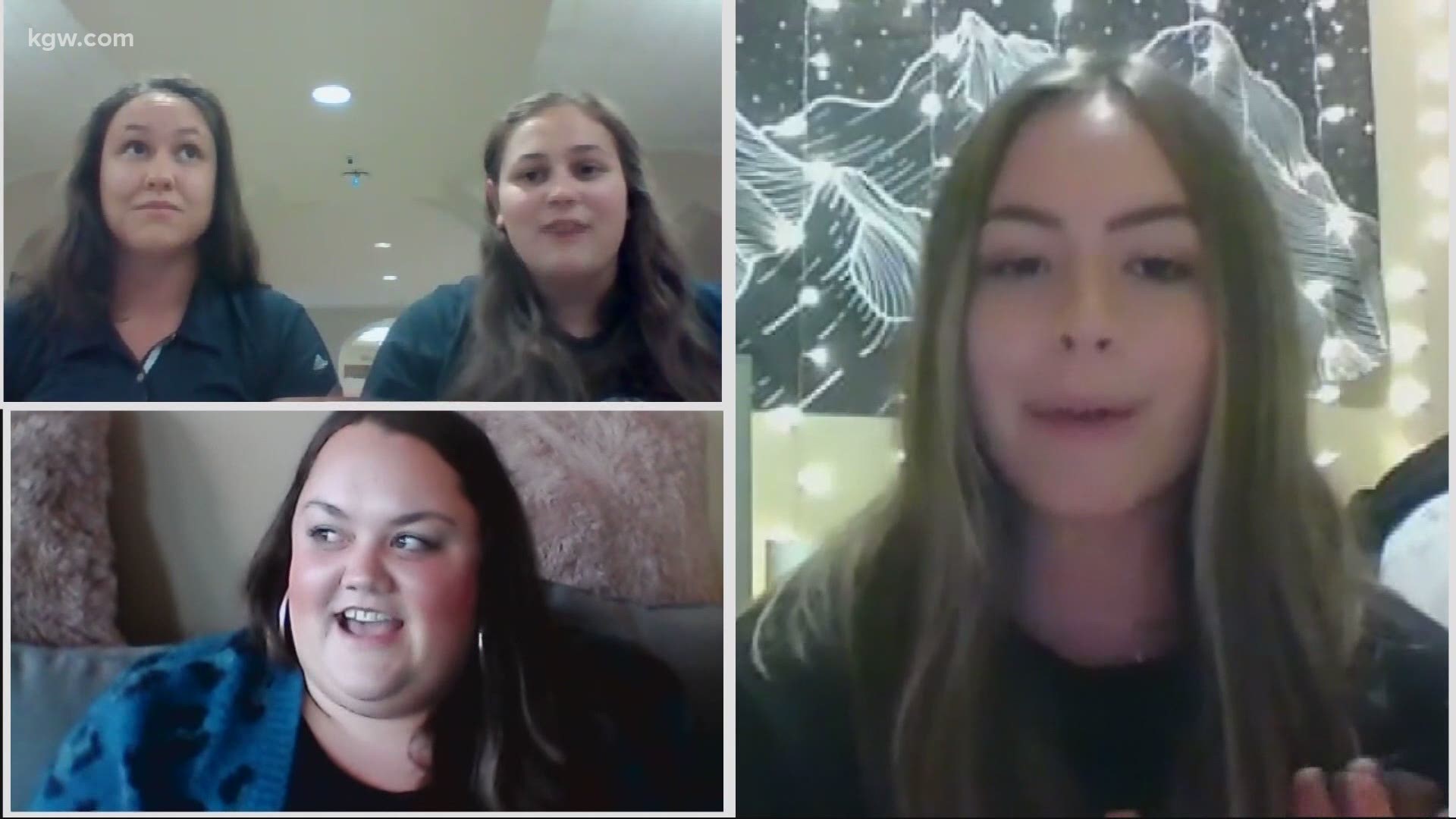PORTLAND, Oregon — As students in Oregon’s public university system begin returning to school for Fall term, many students studying out-of-state have been in school since last month. Some have had to adapt to different learning environments than they expected due to COVID-19, and they’re coping with it far away from home.
Westview High School graduate Harley Hicks is dealing with unexpected isolation while studying in Grand Rapids, Michigan. A month before school started at Davenport University, she said only two of her classes were slated to be online. Now, all but one are being taught remotely.
"The day before my classes started, they changed up my whole schedule and it was kind of chaotic," Hicks said. "It's definitely hard because you kind of rely on those relationships and those friendships as you're far away from home and you can't really do that if you're in isolation."
Clark Community College graduate Ashley Sale started classes at Eastern Washington University this week. She had spent the past month in Cheney, Washington, mostly alone in her apartment. All of her classes are being taught online this term.
"It's just a really hard adjustment," Sale said. "It’s been kind of hard to meet people and get to know the university."
For Sale, a big part of thriving in isolation has been managing her mental health. She encouraged others to embrace any opportunity to do the same.
"It's OK to feel depressed and anxious and lonely, you know?" Sale said. "Being able to cope with it in healthy ways is probably the best thing you could do. I’ve found the best coping mechanism for me is just staying in contact with my people from home."
In Milwaukee, Wisconsin, sisters Gabby and Olivia Baker of Hillsboro are attending Wisconsin Lutheran College. So far, they’ve been able to attend all of their classes in person.
"It's very strict protocol," Gabby Baker said. "If you want to stay in-person, you have to follow the rules. As of this morning we had three [COVID-19] cases since school started."
Recently, Olivia Baker spent two days in quarantine while her roommate waited for COVID-19 test results after experiencing symptoms. She said those days of isolation were challenging, but she tried to stay positive.
"What I kept running through my mind is, 'For now, this is to keep other people safe and to keep myself safe so that this can stop and we can get out of this entire situation so much faster,'" she said.
That resolve is similar to what Marriage and Family Therapist Kati Morton calls "using bridge statements," an important tool for anyone struggling right now.
"Let's say we're on 'Negativity Island' and we need to get to 'Positivity Island,'" Morton said. "We need to build a bridge to get there."
Morton said bridge statements are different than glossing over the situation and pretending like nothing is wrong.
"[You can say] 'it's possible that the world isn't ending. Maybe I will get through this. I'm open to the idea that things could get better.' We have to start with that kind of language," she said.
Knowing their kids are dealing with isolation far from home can be difficult for parents as well. Seeing Hicks leave for Michigan was tough on her mom, Julie Ransom.
"I can't just fly there and take care of it all," she said. "Then, of course, what happens if things go south?"
The first thing parents should do to help is just listen, according to Dr. Jeffrey Eisen, chief medical officer at Cascadia Behavioral Healthcare.
"And then, trying to make an effort of not trying to actually solve the problem for someone but just reflect back on what they’re feeling," Eisen said. "Perhaps offering to help brainstorm solutions rather than take it upon oneself to try to solve it for someone else."
Dr. Eisen said it’s also important to follow up with your child after they share their concerns. It's important during this time of unknowns.
"So much uncertainty creates a level of anxiety and fear," Gabby Baker said. "It's just very hard on your body never knowing what tomorrow's going to bring."

